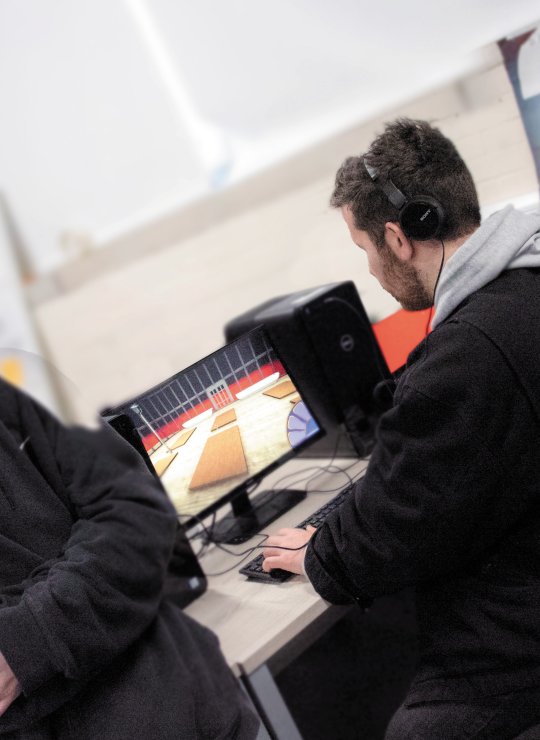
Indie Game Development MA (Online)
Become a confident and daring indie game developer.
Course overview
Learn to produce vibrant and engaging experiences for gamers on this dynamic online MA course. You’ll analyse the principles of the creative process, from early ideation and prototyping through to full production, release and post-release content.
Supported by an experienced cross-disciplinary team of industry practitioners, including tutors working in professional game development roles, you’ll learn to integrate design tools, programming languages, game engines, specialist middleware and frameworks into your game development practice.
You’ll explore current trends in indie games, funding opportunities and studio business models to see how you could start up your own. If you already have a business or game idea, this is your chance to get it off the ground by preparing pitch materials with help from tutors with a wealth of experience.
This Indie Game Development master's course is delivered by Falmouth's Games Academy, which has been ranked 11th in the world for postgraduate games courses, No.1 for both undergraduate and postgraduate Games Design in England (The Princeton Review 2025).
Why study this course at Falmouth?
- Apply the principles of design and creativity to generate novel experiences and own the Intellectual Property (IP) of any games you produce
- Develop digital and non-digital prototypes and playable games, exploring the use of games across a range of application domains, including gamification and serious games – learning to use industry-standard platforms and adapting to their technical constraints
- Use methods from business and analytics to better understand how people engage with indie games and games companies
- Collaborate across disciplinary boundaries and expand your professional networks at optional in-person events
Start dates: January / May / September
(Three intakes per year)

Interested in studying this Online course? Join our virtual Q&A on 23 March.
Find out moreCourse details
Throughout this indie game development course, you'll learn how to produce original and creatively distinguished games based on your own intellectual property. You'll gain the ability to critically reflect upon and evaluate working methods and find the most effective ways to collaborate on projects. You'll also gain key professional skills in pitching your ideas; communicating concepts and presenting artefacts visually with clarity and enthusiasm.
Modules
The modules have been specifically designed to be studied in a non-linear order, with the order in which you’ll study the modules depending on when you begin the course.
MA
You will need to complete four 30-credit modules and one 60-credit Major Project (180 credits in total). All modules on the course are compulsory and must be passed in order to complete the award.
From module information to course aims and assessment criteria, discover the full course details for the MA.
PGDip
You will need to complete four 30-credit modules (120 credits in total), and will not complete a Major Project.
From module information to course aims and assessment criteria, discover the full course details for the PGDip.
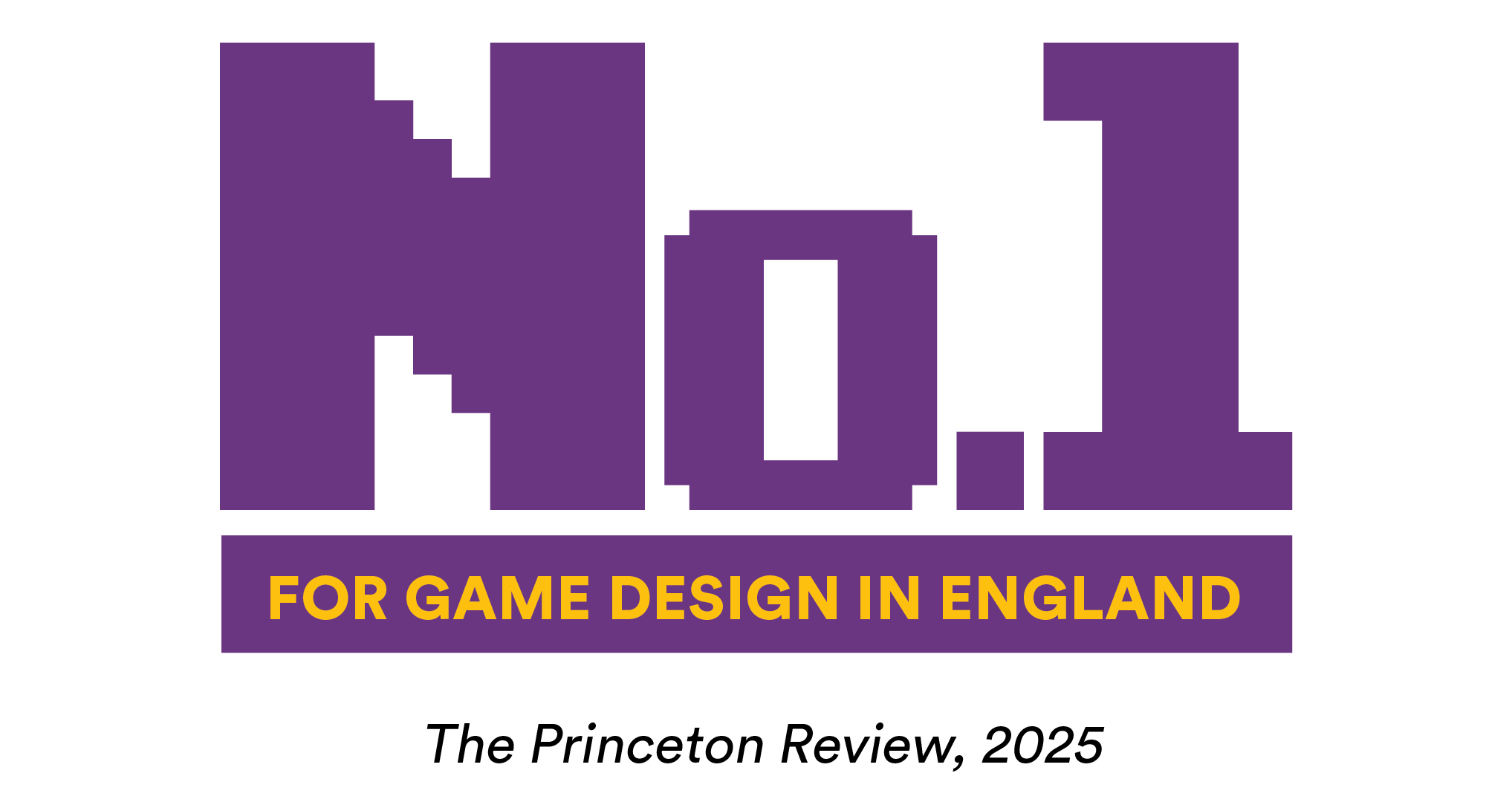
Module details
By devising a series of small-scale creative artefacts, you'll use your existing ideas about development practice and then experiment with new approaches to challenge these ideas. This will enable you to create a personal case study, from which you can define how to expand and enrich your practice. Beyond the personal case study, you'll gain a broader sense of the contexts in which these practices are applied across disciplines.
(30 credits)
You’ll develop and combine skills from the art, design and programming disciplines to create your own small indie game. This will help you understand how game development draws from many different disciplines and explain the different tasks involved in making games. By the end of the module you'll have made a game yourself and produced a report that explains the cross-disciplinary context for your creative process.
(30 credits)
You'll work in a multi-disciplinary team on a problem-led creative project. This will typically, but not necessarily, be a small game or creative app. You'll work together to situate, design, implement and evaluate your creative artefact. With the support of a supervisor, you'll strategically manage scope, workflow, communication roles and responsibilities. At the end, you will have pitched and produced an original artefact, based on your own intellectual property, that clearly illustrates how you can engage an audience.
(30 credits)
In this module, you’ll design and prepare to launch a small business with a focus on indie game development. You’ll investigate and assess market opportunities in an area of your choice. This could involve exploring your audience, comparing how game businesses operate, contrasting business models, and considering how intellectual property can be managed. You’ll then decide which business opportunity your indie game is responding to and devise a business plan. You’ll consider branding, cash flow modelling, enterprise planning, incorporation, seeking further investment and interrogating routes to market. This will underpin further development and launch of your indie game.
(30 credits)
You’ll work on a major research and development project, either independently or with others. This will allow you to expand and consolidate your skills of devising, developing and executing an extended development project. You can build upon your projects from other modules or develop a new concept. You should finish the course with a polished project of a publishable quality. A supervisor will act as your mentor and adviser. If you’re planning to start your own business following this MA, your supervisor can direct you to professional services staff for business mentoring.
(60 credits)
As part of our process of continuous improvement, we routinely review course content to ensure that all our students benefit from a high-quality and rewarding academic experience. As such, there may be some changes made to your course which are not immediately reflected in the content displayed on our website. During your course, module content may be updated or optional modules withdrawn in order to maintain the best academic experience. Any students affected will be informed of any changes directly.

Got questions about the course, funding or online study?
Your Course Advisor Simone is here to help.
Our students and graduates

"Not only did I develop all the skills I was missing, but I also learned to stop putting myself down so much and to have belief in myself."
Sarah Masters, graduate

"The challenges I encountered on the course helped me to understand what is required for building a business, and I consider it a huge achievement to now run my own studio."
Georgi Tsaklev, graduate
Stories from our community

Game Development graduate on making retro games and his YouTube following
29 January 2026
From building minigames in LittleBigPlanet as a teenager to releasing homebrew (unofficial hobbyist)...

Why I returned to study an Indie Game Development master’s while teaching
27 January 2026
After years working across games and education, Jess Bradshaw chose to return to study with a clear ...

Game Art graduate reaches finals in international team challenges
20 January 2026
BA(Hons) Game Art and MA Game Art graduate Eden Gates has reached the finals of two team-based game ...

Game Development Writing graduate builds career in community management
25 November 2025
For Liam Gregory, studying Game Development: Writing BA(Hons) at Falmouth opened the door to far mor...
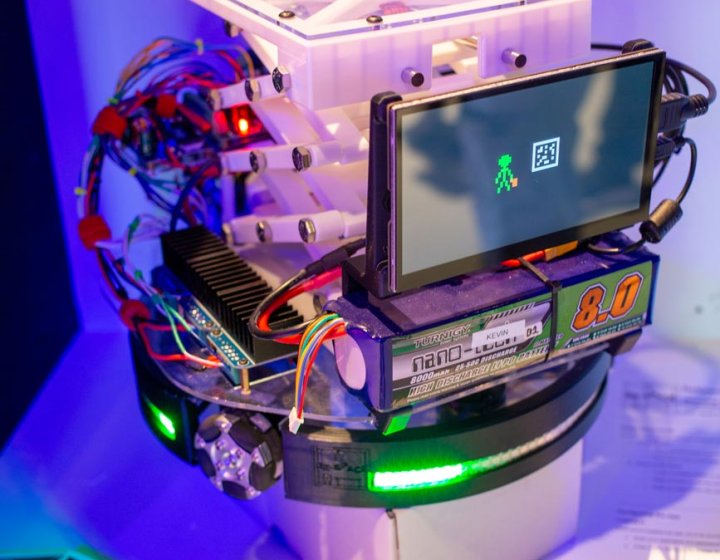
What is Creative Computing?
24 November 2025
Senior Lecturer in Computing, Matt Watkins explores what creative computing is and how it’s transf...

Falmouth University awarded £1.4m to power the future of creative design and manufacturing
18 November 2025
New state of the art design and advanced manufacturing facilities for students at Falmouth Universit...
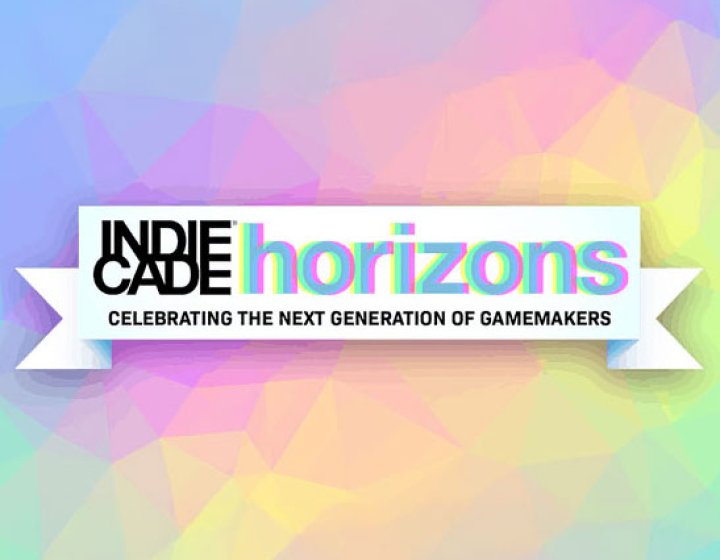
Dr William Huber honoured with Horizons Faculty of Excellence Award
11 November 2025
Falmouth University’s Associate Professor of Game Studies, Dr William Huber, has received internat...
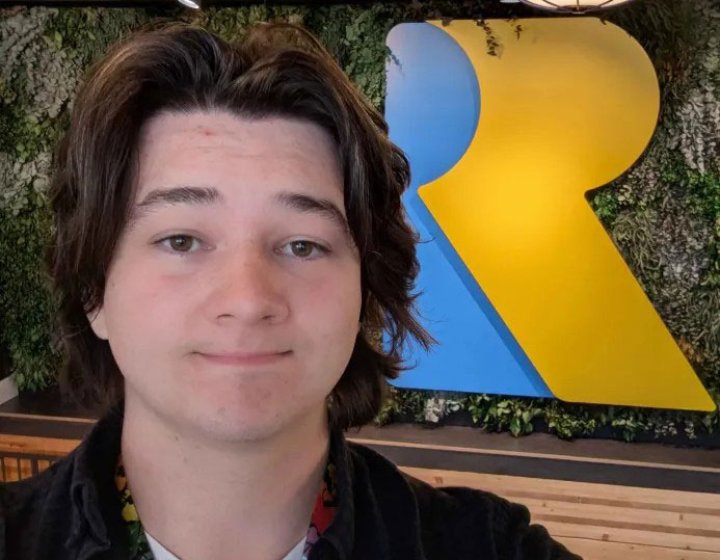
Game Animation student on joining renowned games studio
06 November 2025
Since graduating from Game Animation BA(Hons) at Falmouth, Brendon Chadwick has landed a dream start...
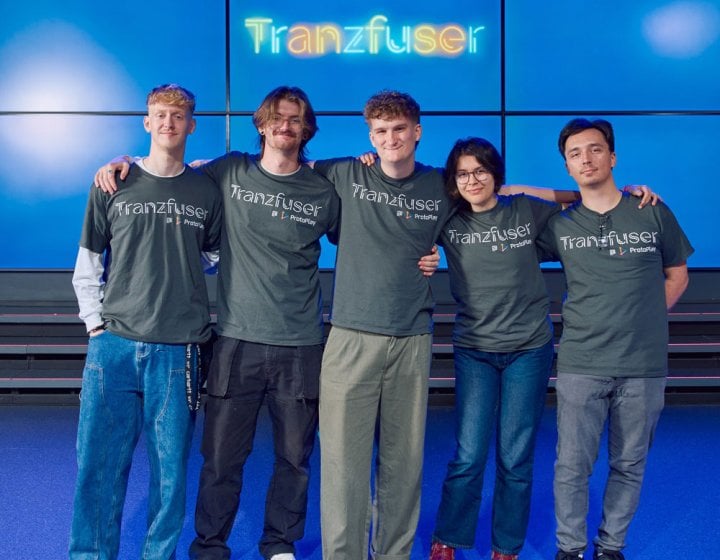
Games Academy graduates win national Tranzfuser competition
04 November 2025
Studio Whalefall, a team of Falmouth Games Academy graduates, is celebrating success after winning T...
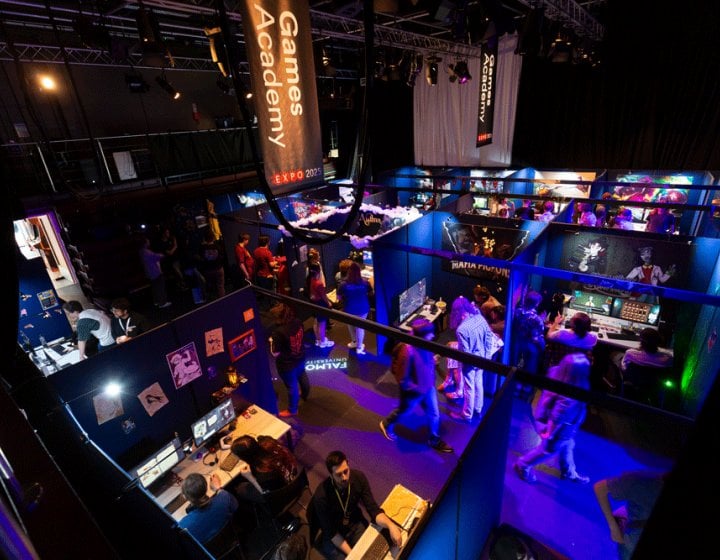
A catalyst for creativity and innovation: a decade of Falmouth University's Games Academy
21 October 2025
When Falmouth University launched its Games Academy in 2015, it did so with a bold premise: that gam...
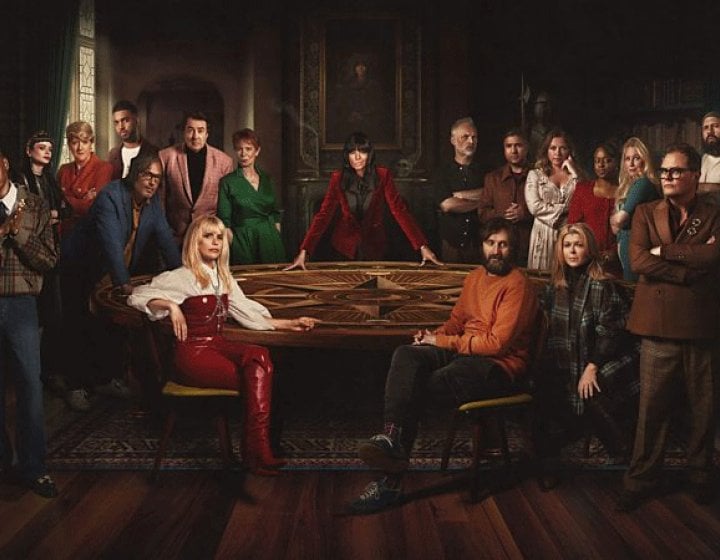
Playing the Game: What Celebrity Traitors reveals about strategy, authenticity and the self
16 October 2025
When The Traitors first appeared on television, few could have imagined that a game once played in t...
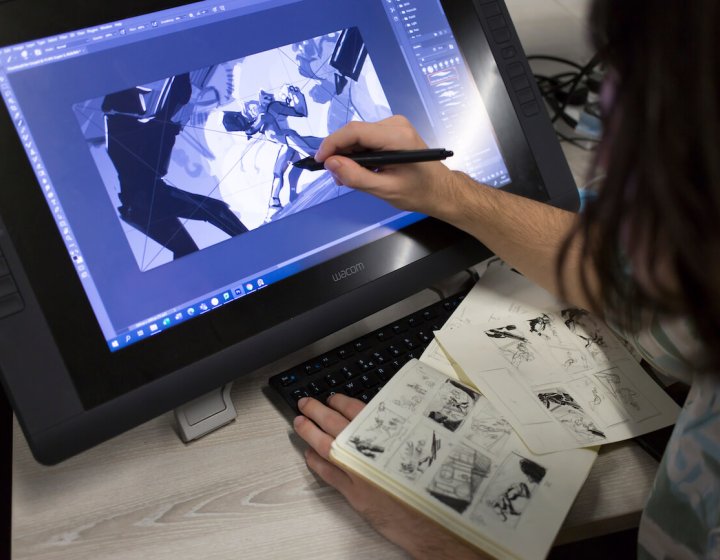
The difference between studying Game Art and Game Development: Art
15 October 2025
With two Game Art undergraduate degrees within the Games Academy, you might need a hand picking betw...
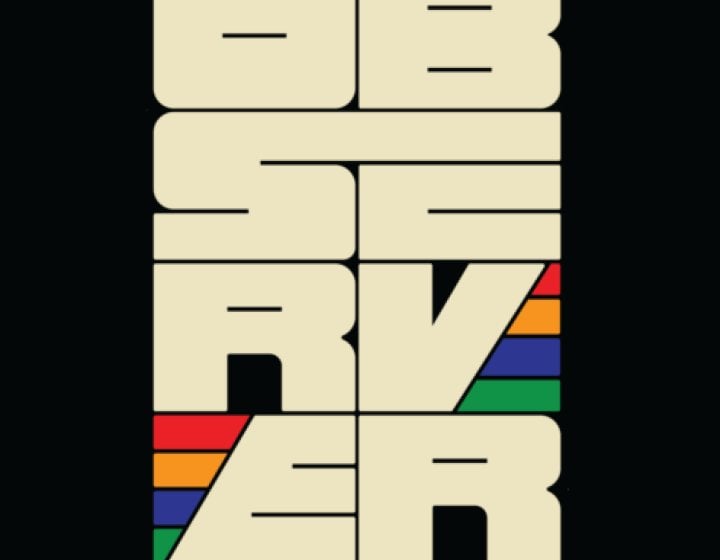
Lecturer’s game studio wins national award for championing games education
07 October 2025
Observer Interactive, the independent studio co-founded by Matty McGrory, Senior Lecturer in Indie G...

How a passion for cars led to a career in games and teaching Game Art
03 October 2025
Lee Walton’s route into games was anything but typical, moving from car design into roles at leadi...
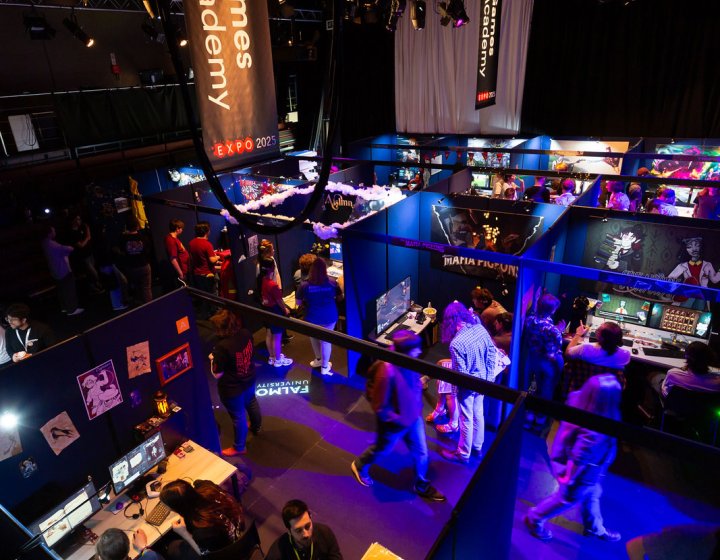
Forging Futures: How Falmouth University’s Games Academy became a catalyst for creativity and innovation
02 October 2025
When Falmouth University launched its Games Academy in 2015, it did so with a bold premise: that gam...

An international student’s journey on Falmouth’s MA Game Art
25 September 2025
For Anosh Saji, choosing to study a master’s in Game Art at Falmouth was about more than gaining s...
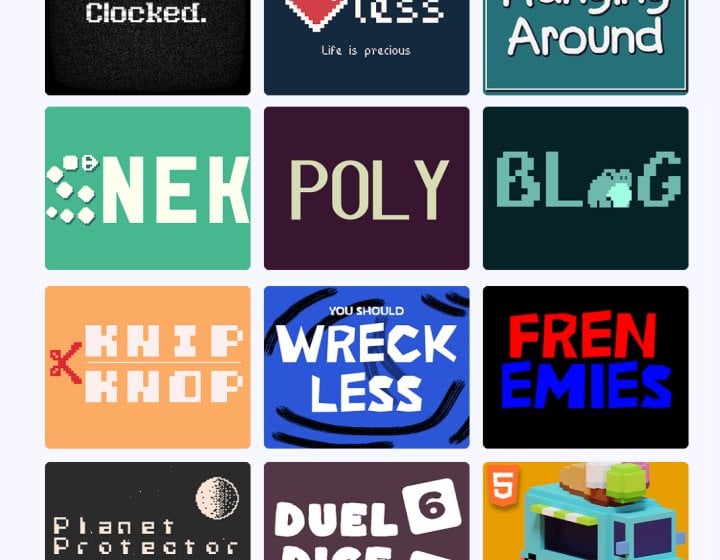
Indie Games Online student completes 12 games in 12 weeks project
23 September 2025
For his final major project on the Indie Game Development MA (Online), Mathijs Koning set himself a ...
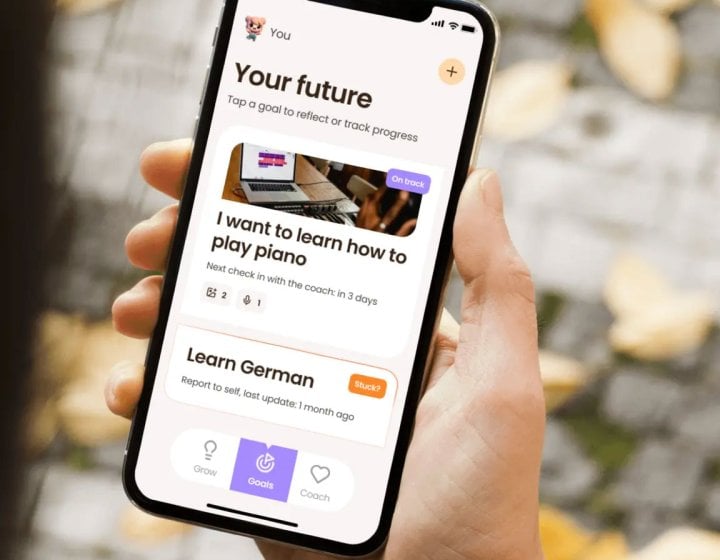
User Experience graduate on exploring scent, further study and starting a business
18 September 2025
When we think about digital design, we tend to think of screens, buttons and code. For User Experien...

Game Art lecturer on character creation and collaboration
16 September 2025
We chatted with senior lecturer in Game Art, Michael Boylan, on how games are almost never made in i...
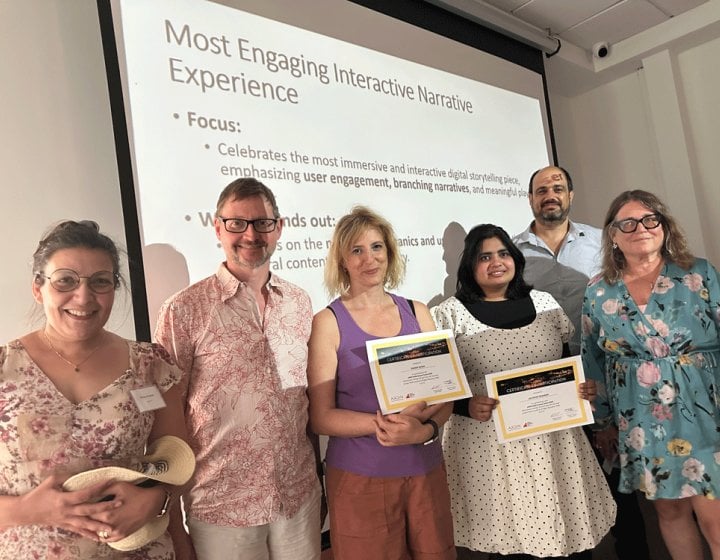
Meet the Game Programming lecturer at the cutting edge of interactive design
16 September 2025
Anjuman Shaheen, Lecturer in Game Programming MSc, has completed an intensive summer school in Malta...
Learning and support
You'll learn through a blend of recorded learning content, learning activities, guest talks, tasks and discussion forums, which you'll access via our dedicated virtual learning environment. This is also where you'll find all key documentation, get course announcements and access extensive learning resources.
How will I be supported?
You'll be supported academically by Online Tutors, who will also deliver weekly webinars and facilitate the online forums. If you need assistance with anything that isn't directly related to course material, a dedicated Student Advisor team will be on hand to help. You'll also have access to Falmouth University's excellent Employability Service.
You'll refine dynamic development practices, spending around 25 hours a week working on your craft. We incorporate optional face-to-face events for all our online students. There will be up to two per year and will typically run over weekends, to fit around your other commitments.
What are my study hours?
Based on the total learning time for the Postgraduate online courses, an average study week can be up to 25 hours. As our online courses are intended to be flexible, the time required to study will vary based on the level of study, the module week, and individual learning pace.
Assessment methods
Assessment provides the course team with a means of offering tailored guidance alongside advice on how to progress knowledge and skills in key areas that relate to the course Learning Outcomes. The course team will identify your strengths and weaknesses as an individual and discuss them with you throughout your time on the course.
Assessments are 100% coursework, submitted in an electronic format to the virtual learning environment, and designed to reflect professional practice. Assessment methods include:
- Projects
- Portfolios
- Pitches
- Papers
- Dedicated easy-to-use virtual learning environment (VLE)
- Accessible online audio / visual content
- A Student Advisor to support you throughout your studies and access to our Student Support Services
- Access to our Employability Service
- 24/7 access to Falmouth's extensive online library of contextual books, journals and resources
- Access to online software tutorials at LinkedIn Learning
- Students' Union community
- Optional in-person events
- Invitation to attend alumni events
Although online students don't have access to on-campus facilities as part of the course, you can hire equipment and access facilities by paying a charge. Find out more about availability and prices here.
Meet the team
The Indie Game Development course is part of Falmouth’s Games Academy, one of the largest dedicated game development studio spaces of any UK university. You'll learn from industry experts with years of experience across disciplines, bringing together art, animation, audio, design, programming, production and writing. Some members of staff only teach on specific modules.

Matty McGrory
Lecturer: Indie Game Development (Online)
Matty McGrory is the cofounder and Design Director of Observer Interactive, where he is currently wo...

Liz Coulter-Smith
Lecturer and Course Leader, User Experience Design and Indie Game Development
Liz Coulter-Smith is Course Leader for MA User Experience Design and MA Indie Game Development at Fa...

Alexander Horowitz
Online Tutor: MA Indie Game Development
Dr Alexander Horowitz is a game audio director and composer based in the South-East of England. He i...

Giovanni Rubino
Module Tutor
Giovanni Rubino teaches across the MA Online Indie Game Development, including Development Practice,...

Adam Clewes-Boyne
Online Tutor, Indie Game Development MA (Online)
Adam is a talented games programmer and designer, as well as co-founder of BetaJester Ltd, an indie ...

Gabrielle Kent
Lecturer, Indie Game Development MA (Online)
Gabrielle Kent is an author, game developer, and lecturer. She started her games career in the mid 9...
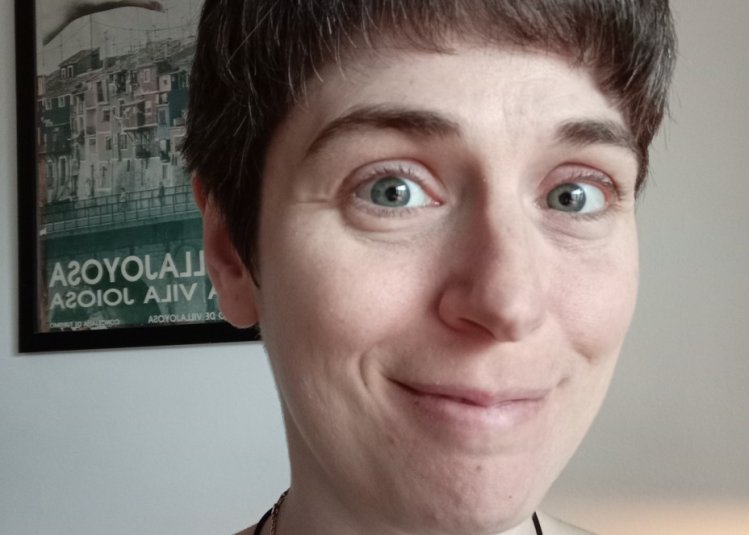
Erica Masserano
Lecturer, Indie Game Development MA (Online)
Erica is Lecturer (Final Major Project Supervisor) on the Indie Game Development MA. She is an educa...
Some members of staff only teach on specific modules, and your course might not feature every staff member who teaches on the course.
Careers
Our game development graduates have worked as:
- Game developers at companies such as MediaTonic, Firesprite, Creative Assembly, Project Gamechanger and Rare
- Creative AI specialists at companies including Ultrahaptics, Solutionpath and Bewsign
- Researchers and developers at companies such as Facebook
- Designers, developers, programmers and analysts at companies such as Facebook
- Doctoral researchers in artificial intelligence and/or data science, sponsored by the likes of Google
Our graduates have a track record of producing successful indie games. Published titles include: Get Packed by Moonshine Studio, Soria by Polargryph, SAI by Studio Mutiny, RoBoats by Animal Puree, Kick Your Astronaut by SquirrelSoft and Karate Krab by Liquid Sapling. Visit Our Games page to find a selection of real games that Falmouth students have collaborated on.
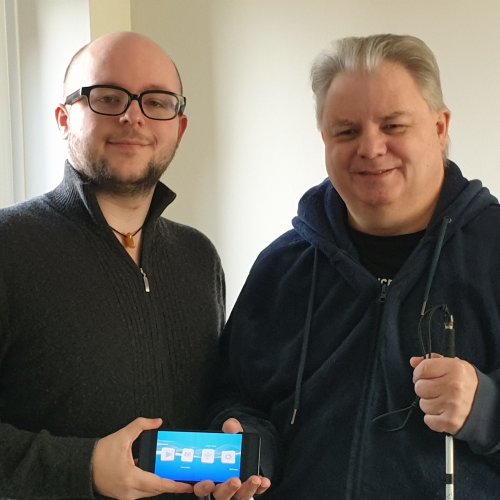
Meet graduate Elliott Dodsworth
Graduate Elliott Dodsworth talks about his game project with visually impaired accessibility at the core, which was awarded funding by UK Games Fund.
Learn moreHow to apply
Speak to us about the course
If you'd like to talk to an Advisor about this course or your application, get in touch with us via the form below.
Ask us a question
Apply now
Ready to apply for postgraduate study? We have three start dates a year: January / May / September. Select the start date you'd like to apply for in the drop-downs below and then click the relevant apply button to begin.
You can apply to begin your studies in May 2026 by selecting the relevant course route below:
You can apply to begin your studies in September 2026 by selecting the relevant course route below:
Application information for January 2027 will be provided shortly. If you have any questions regarding our January 2027 start date, you can get in touch with us using the form below:

How to apply for our Online Degrees
Find out moreAn honours degree or Level 6 equivalent qualification is desirable. However, candidates without a degree or formal qualification are still encouraged to apply. If you'd like to discuss our entry requirements, speak to an advisor.
For more information regarding equivalent international qualifications and Accreditation of Prior Learning (APL) either request information with our easy online form, or read about it on our apply page.
If English is not your first language you will need to meet the same standard which is equivalent to the IELTS Academic 6.5 overall score, with at least 5.5 in Reading, Writing, and Listening, and a minimum of 6.0 in speaking.
We also accept a range of other recognised English language qualifications. You can visit our English Language Requirements page for more information.
For more information about equivalent international qualifications or English language requirements please contact our friendly Course Advisors.
What we're looking for
We're looking for people who are interested in working with artists and designers, developers, and creatives in a distributed studio environment, testing and experimenting with cutting-edge technologies and game development techniques.
You may be early in your career following completion of related undergraduate study or further along in your career but interested in re-training and learning new relevant technical skills or starting a business.
This course has three intakes per year: January, May and September.
| Academic start date* | Application deadline | Early Bird Discount deadline |
|---|---|---|
| 26 May 2026 | 6 May 2026 | 30 March 2026 |
| 21 September 2026 | 7 September 2026 | 3 August 2026 |
| 18 January 2027 | 8 January 2027 | 23 November 2026 |
Please note:
*Virtual Welcome Week begins the week before the academic start date. During this time, our Student Advisor team will host Welcome Webinars and be in touch with practical information on how to study online.
An Early Bird discount is available for early applications. Currently the scheme offers up to £600 off MA tuition fees: £300 if you apply by the Early Bird discount submission deadline, and a further £300 off your tuition fees if you receive an offer and within two weeks you accept the place and pay the acceptance fee. Both these payments would be applied to your final fee instalment. Please note the discount amount is subject to change for future intakes.
| Early Bird discount submission deadline | Academic start date |
|---|---|
| 24 November 2025 | 19 January 2026 |
| 30 March 2026 | 26 May 2026 |
| 3 August 2026 | 21 September 2026 |
To discuss all our discount opportunities, contact an advisor.
Fees, costs & funding
Tuition fees
At Falmouth University, you can choose to pay your tuition fees for our online postgraduate courses up front, or in instalments.
MA/MSc course (2 years part time)
- Total fee £12,150 (incl. acceptance fee)
- Two instalments of £6,075, paid at the start of each year, or six instalments of £2,025 at the start of each study block.
PGDip course
- Total fee £7,921 (incl. acceptance fee)
- Four instalments of £1,980.25 at the start of each study block.
Your acceptance fee is deducted from your first instalment. Any discounts you have been awarded are deducted from your final instalment(s).
At Falmouth University, you can choose to pay your tuition fees for our online postgraduate courses up front, or in instalments.
MA/MSc course (2 years part time)
- Total fee £12,150 (incl. acceptance fee)
- Two instalments of £6,075, paid at the start of each year, or six instalments of £2,025 at the start of each study block.
PGDip course
- Total fee £7,921 (incl. acceptance fee)
- Four instalments of £1,980.25 at the start of each study block.
Your acceptance fee is deducted from your first instalment. Any discounts you have been awarded are deducted from your final instalment(s).
Tuition fees for September 2027 will be confirmed in summer 2026.
Tuition fees are set annually and are subject to review each year. The University may therefore raise tuition fees in the second or subsequent years of a course, in line with inflation and/or the maximum permitted by law or Government policy. Students will be notified of any changes as soon as possible.
The figures above don't include accommodation and living costs

Early Bird discount available
Request informationTypical course costs
As part of studying Indie Game Development you will require:
Laptop/computer
A desktop/laptop at an expense of around £1,300, capable of running game engines (such as Unity and Unreal Engine), and 3D modelling software (Blender and Autodesk Maya, for example), as well as our virtual learning environment.
Optional face-to-face events
You will be expected to cover your own travel, accommodation and subsistence costs to attend these events.
There were no additional costs recommended for students joining this course in September 2025.
Funding and scholarships for postgraduate students
There are loans, scholarships, awards, graduate discounts and alternative funding sources for domestic and international postgraduate students. Read about them on our Postgraduate Funding page.
Find out about funding
Ask a student
What better way to find out about life at Falmouth University than by asking our current students?
From course details and academic support, to the social scene and settling in, our students are ready and available to answer any questions you might have. Simply set up your account, send them a question and they'll get back to you within 24 hours.
Speak to an advisor
Do you have questions about the course or studying online with Falmouth? Fill in our simple online form and we'll get in touch to support your application journey.
Submit form
Similar courses

Artificial Intelligence for Creative Practice MA
This master’s programme explores how emerging technologies can enhance and transform human creativ...
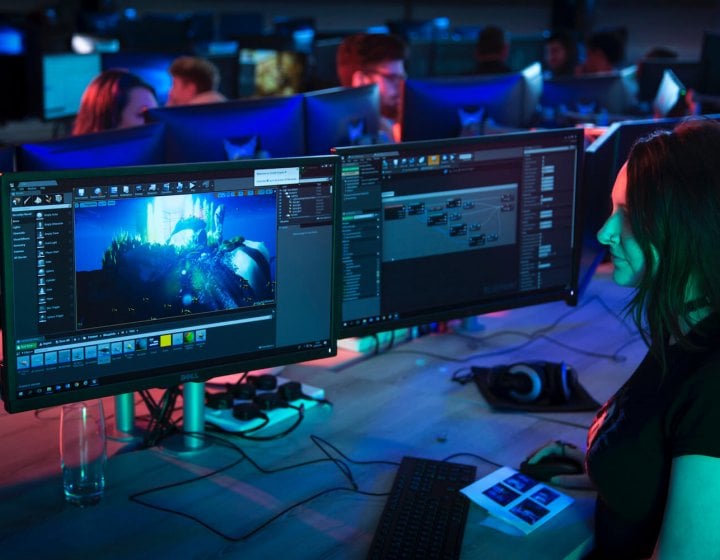
Game Programming MSc
Get the edge in the highly competitive games industry by learning technical, creative and profession...
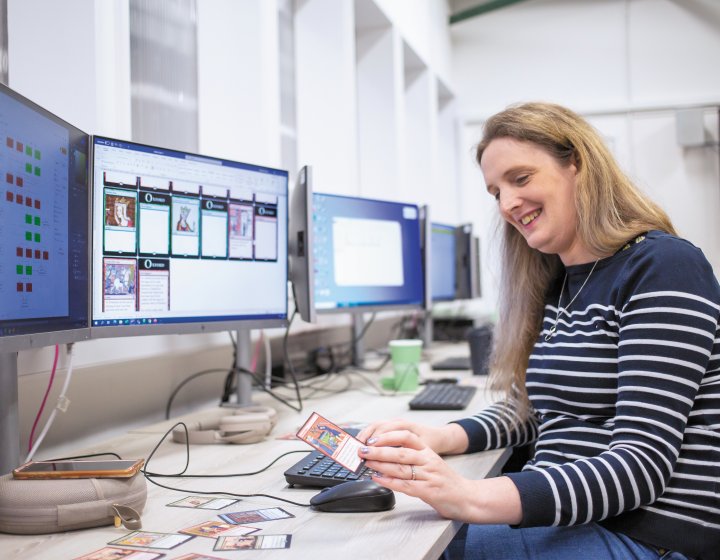
Game Design MA
Are you passionate about games and keen to make them better? Do you feel curious about what makes a ...
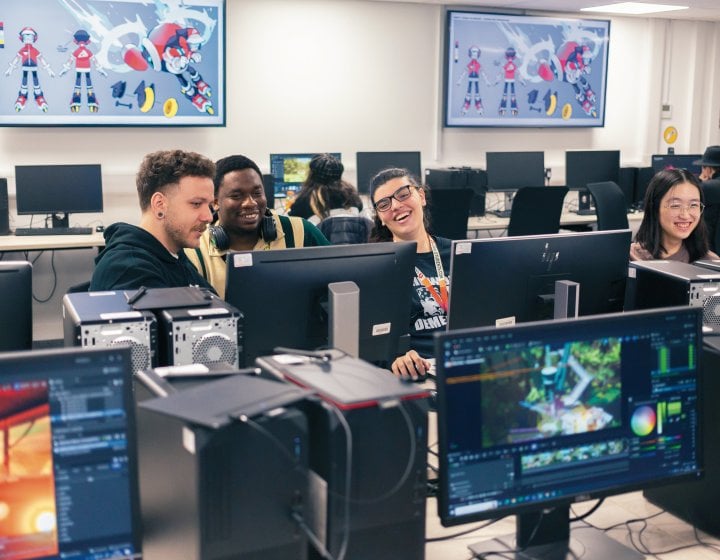
Game Art MA
Are you an artist with a passion for games? Do you want to develop your skills to meet the challenge...
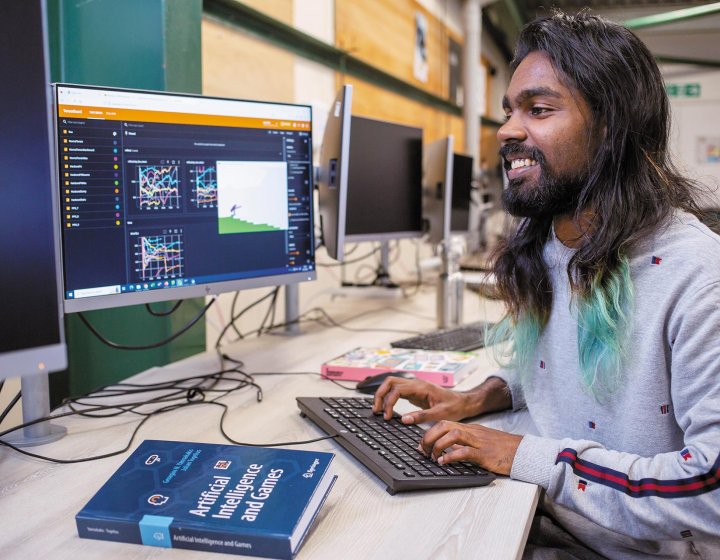
Artificial Intelligence for Games MSc
Break new ground in the application of AI for games. Do you want to explore the applications of...